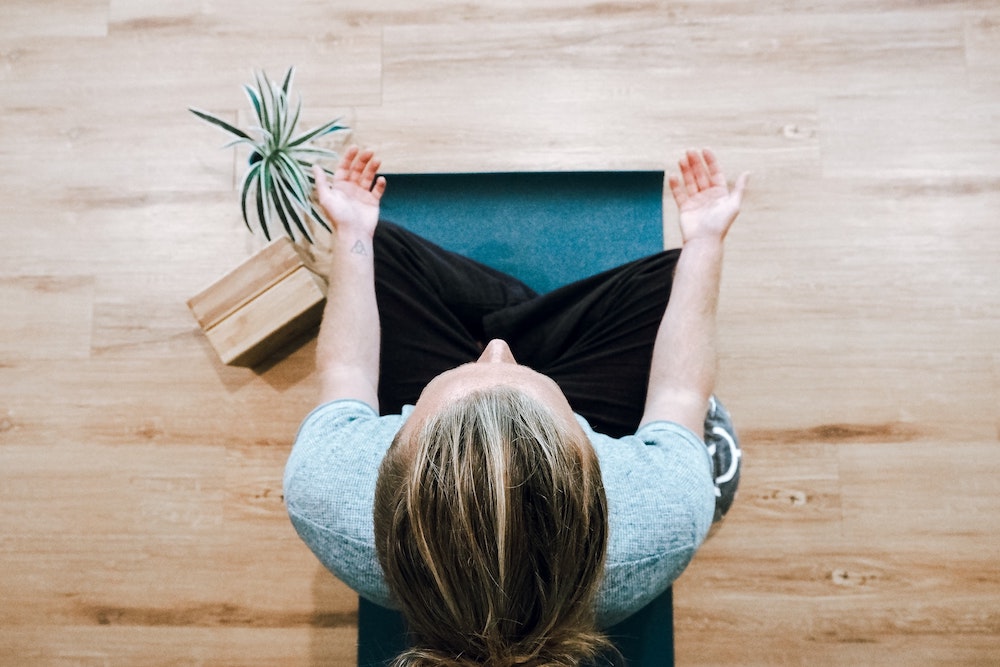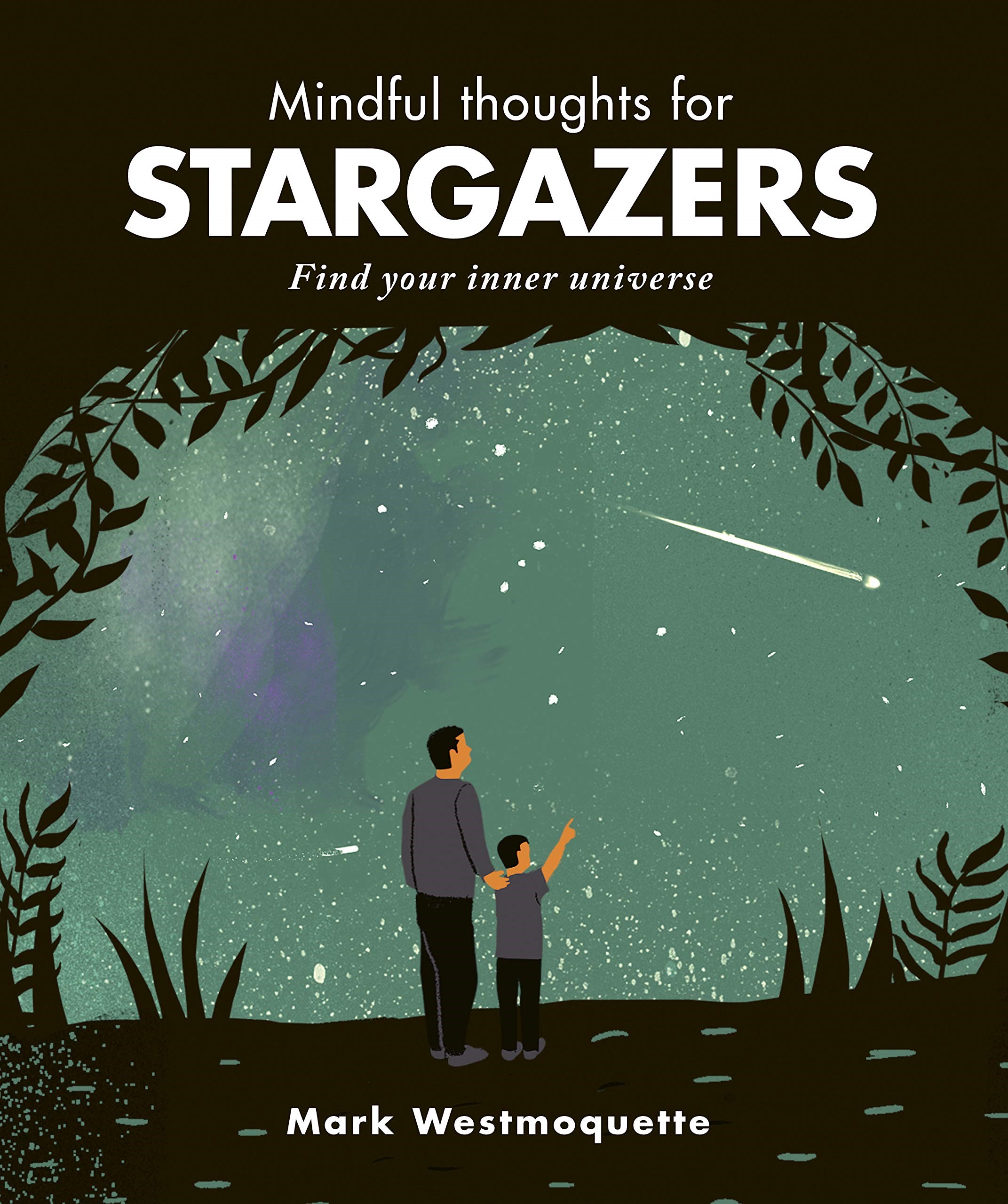
Article provided by Mark Westmoquette is an Astrophysicist, Zen Teacher and the author of Mindful Thoughts for Stargazers, Stars, and The Mindful Universe. See more at markwestmoquette.co.uk
In the past you might’ve heard that stress is an unhelpful leftover from our days in the wilderness that’s no longer appropriate for the modern world. But more and more research is showing that the human stress reaction is still just as valuable, and can actually make us stronger and more connected – if we learn how to work with it not against it.
Considering how we can reduce stress and anxiety belongs to the mindset that says stress is bad. Instead, I find it more helpful to switch things around and explore how we can become more resilient and improve our mental fitness.
Mental fitness refers a variety of attributes that determine how able we are to deal with life’s ups and downs. Have you heard the fable of the egg, carrot and coffee bean? Before cooking, the egg starts off as liquid inside by a fragile protective shell, but in boiling water (i.e., when it’s exposed it to stress) it goes hard. The carrot begins strong and tough, but with cooking it goes soft. These represent the typical responses people have to stress – either toughening up and putting up defences or withering and relenting.
In contrast, the coffee bean flourishes in hot water, releasing its fragrance and flavour and eventually transforming the water itself. Being mentally fit means having the skills and attitudes to thrive in adverse conditions like a coffee bean.
The central pillar in developing mental fitness is the skill of mindfulness. Mindfulness means bringing a deliberate awareness to the external situation and to how you feel internally – noticing sensations, body posture, thoughts, memories and ideas. But it also means doing your best not to want what you find to be different.
First and foremost, it teaches us how to listen deeply with an attitude of kindness, and be present with ourselves and those around us. In the business world, emotions have often been seen as primitive and something to be suppressed. Thus we’re not used to acknowledging our emotions and seeing them as a natural part of our work life.
Making friends with our emotions – especially the negative ones – means we no longer see them as a deficiency in our performance but as important messengers. They give us invaluable information in situations like, for example, pursuing a lead based on a hunch or gut feeling. Yes, we don’t want to let our emotions wholly dictate our behaviour, but it’s also important we don’t suppress and dissociate ourselves from them either.
Mindfulness teaches us to notice and allow emotions to arise and pass with a kind of friendly attitude of curiosity not judgement. Awareness gives us the choice to stop or otherwise temper our emotional responses – the more aware we are of them, the less unconscious power they have over us.
Mindfulness also helps us safely explore other critical components of mental fitness, including our “zone of discomfort” – many of life’s twists and turns involve some level of discomfort. Without keeping a close track of our internal state, we can easily overstep this boundary into a place of real danger, or, conversely, always shy away from it for fear of what might happen.
Embracing uncertainty is another critical element. We instinctively fear uncertainty because it’s difficult to bear the discomfort of life unfolding in a way that’s not in line with our wishes and expectations. We want things to go “our way” and we fear losing control. Mindfulness helps us to transform that discomfort into curiosity so we can, instead, allow uncertainty to become an opportunity for creativity.
Furthermore, without awareness, it’s very difficult to establish and enforce our personal boundaries (be they digital, physical or psychological). Cultivating that open sensitivity to what’s going on is what allows us to maintain our boundaries and act kindly and assertively to those that disregard them.
As we more closely listen to our thoughts and feelings, and become increasingly aware of our behavioural habits, we gain the wisdom and clarity to make good decisions and respond skilfully to the challenges that arise in life. We move from a place of acting impulsively out of habit or fear to a place of responding with conscious choice.
The ultimate aim of getting mentally fit is to care for our own mental wellbeing and, in doing so, to build an emotionally healthy lifestyle that encourages a positive engagement with life. This ensures our ability to thrive as we face the challenges and opportunities that a career represents.
From an individual perspective, we need to invest time and effort on a daily basis to support our own mental fitness.
Mindful Thoughts for Stargazers explores how knowledge of the workings of the universe can deepen our levels of awareness and connect us to our internal worlds.
Part of the Mindful Thoughts series, this dazzlingly illustrated little book meditates on all aspects of the cosmos.
Physics and astronomy are not cold, detached subjects, they engender awe, wonder and a sense of connection with everything that exists. Astronomer and ex-Zen monk, Mark Westmoquette, provides 25 calming meditations that offer mindfulinsight on the skies above us, suitable for everyone from scientists to stargazers.

